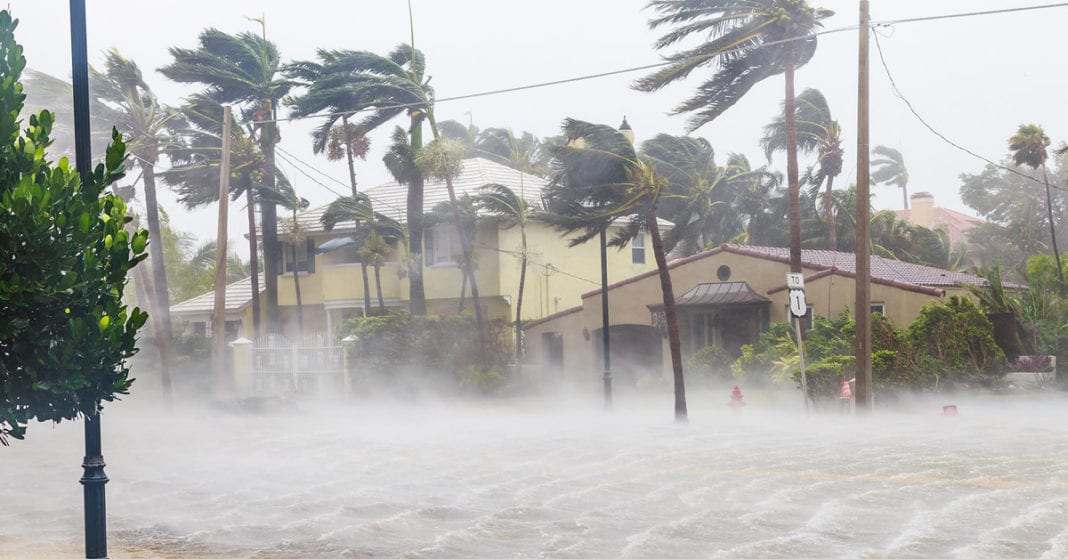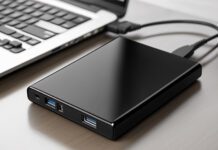Hurricane Season is upon us, spanning from June 1 to November 30. Last year reminded us just how much havoc an extremely active hurricane season can bring. Irma’s maximum sustained wind speed of 185 mph made it the strongest storm that’s ever existed in the Atlantic, outside the Caribbean and Gulf of Mexico. (Including those regions, it’s the second strongest after Allen, which reached 190 mph). Although last season’s catastrophic storms like Harvey, Irma, and Maria are in the past, we could face similarly dangerous storms this year as well.
Harvey broke the record for most rainfall from a tropical cyclone in the US, with more than 60 inches of rain falling at two measuring stations in Southeast Texas. Maria was the first Category 5 storm to hit Dominica and the strongest storm to hit Puerto Rico since 1928. Overall, it was a rough year — one that exceeded forecasters’ expectations.
According to the 2018 Atlantic Hurricane Season Forecast, the number of named storms and hurricanes are slightly above historical averages, but less than last year. A total of 14 named storms, seven hurricanes and three major hurricanes are expected this season.
Here are 6 steps you can take to prepare for a hurricane:
PLAN YOUR EVACUATION
- Be familiar with evacuation areas, evacuation routes, and shelter locations. It’s suggested that you practice evacuating during good weather, so you know what you’re doing. If you can’t access a shelter, your next best protection is a small, interior, windowless room in a sturdy building on the lowest level. All of this information is provided by your local government.
BUY SUPPLIES
- Make a “hurricane kit” with needed supplies for at least three days, including water, food, blankets, clothing, medications, first aid kit, battery-powered radio, flashlight, batteries, and a whistle.
CHECK INSURANCE COVERAGE
- Tenants and homeowners should contact their renters or home insurance provider to buy flood insurance.
If you own a car, contact your auto insurance company and move your car into an offsite location or secured building. If you still haven’t found an auto insurance company you can trust, you might want to dig this.
MAKE COPIES OF IMPORTANT DOCUMENTS
- Make copies of proof of ownership documents of any property, including your home, car, boat, etc. Put these documents in your hurricane kit or another safe location. You can also make password-protected digital copies.
PROTECT YOUR HOME
- Inspect your home to confirm there’s no damage that a hurricane could increase, and repair any issues with overall structure like loose shingles or damaged roofs.
- Declutter drains and gutters, and cover windows and doors with plywood to prevent them from blowing open. If you live in an area especially at risk of hurricanes, consider hurricane shutters.
BACKUP ELECTRONICS
- Store important data at an off-site location so it can be recovered if something happens to the physical device.
- Keep extra batteries and chargers available
COMMUNICATION
At Call-Em-All, we’re here to help you deliver emergency evacuation reminders — fast. Here are some ways you can use us to communicate during an emergency.
- Emergency Management Notifications: Businesses, local governments, senior living facilities, and schools need to communicate with large groups of people as fast as possible. Last year during Hurricane Harvey, senior living facilities used us to communicate with staff and residents about evacuation plans, and with residents’ families about their loved one’s whereabouts.
- Staffing Check-Ins: Last year, the United States Postal Service sent out voice broadcasts using our survey broadcast feature to check each employee’s status, whether they were safe, injured, or needed help.
- Emergency Staff, First Responders, CERT: We can help you organize volunteers and emergency staff to help with evacuating residents, providing medical attention, and post-storm recovery services. Use us to fill requests for hundreds of nurses and emergency staff.
- Business Closures: Tell staff and customers how you plan to handle the emergency and provide updates.
- Service Interruptions: Notify customers of a service disruption like changes in trash pickup. Last year, trash companies used us to notify customers of a service disruption as well the alternate plan for pickup.
Get started with your Call-Em-All free trial, and click here for more information on how to prepare for hurricanes.
Resources:
https://www.ready.gov/hurricanes
This article originally appeared here.












